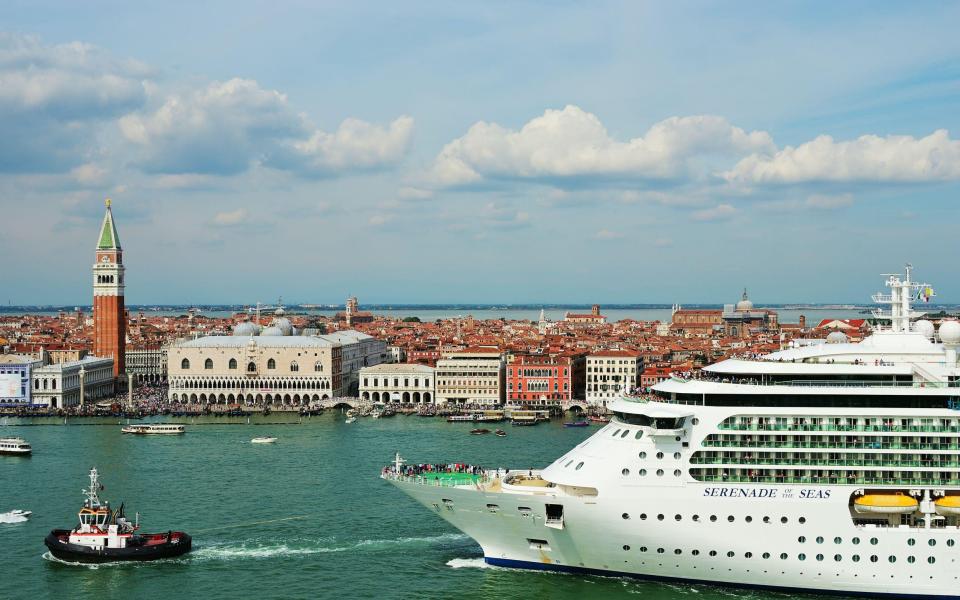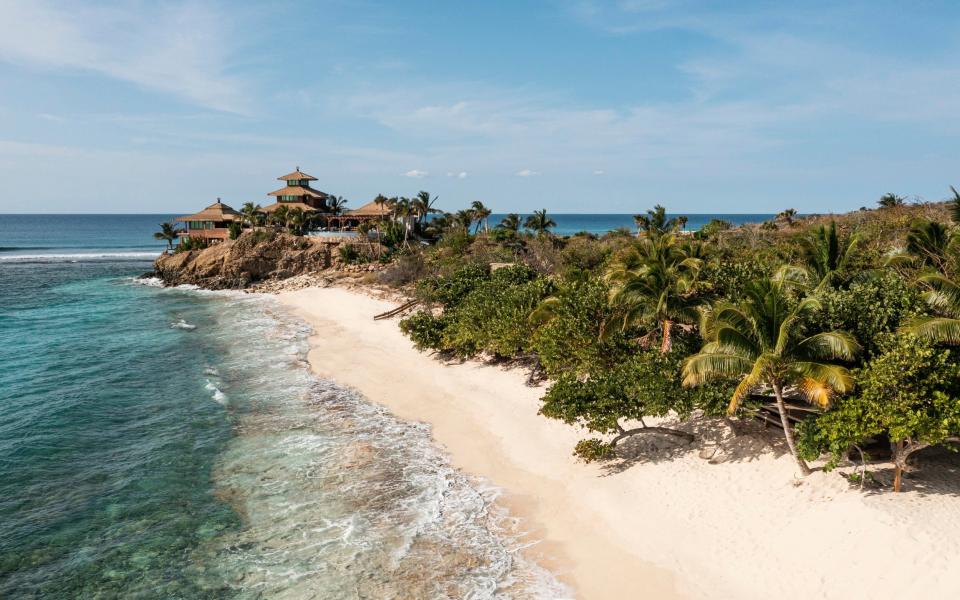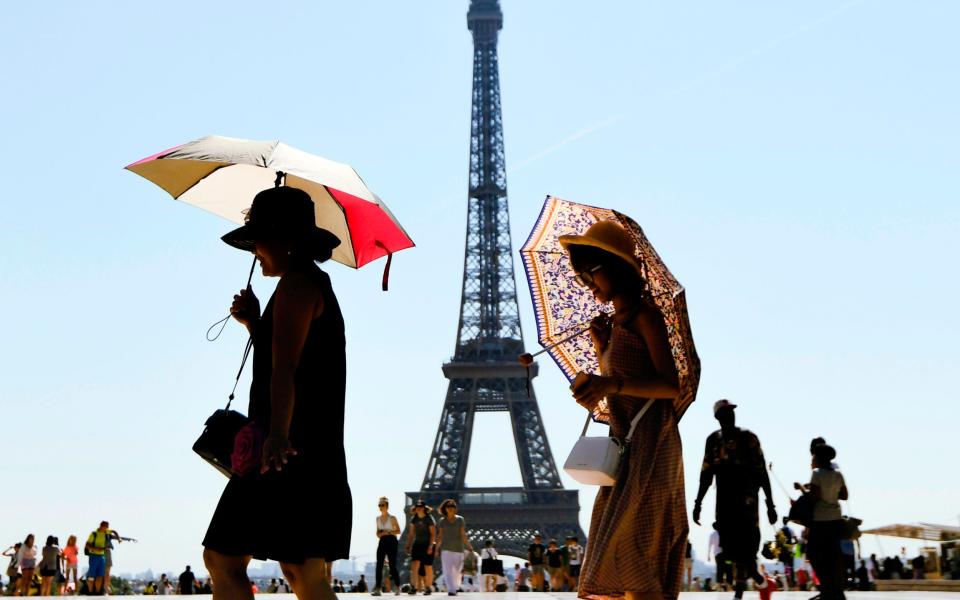“Over-tourism” is already a buzzword this year. We went back to seaside resorts and old bosses after the pandemic, before we were bombarded with stories about restaurants and attractions. In Amsterdam, a new guide told hedonistic Brits to stay away. In places like Athens, locals are running anti-tourism graffiti campaigns, with the aim of letting visitors know they are not welcome.
For other countries, tourism taxes are being implemented in response. Usually only small amounts of money are made, the fees are usually added to hotel bills or payable at the airport. These are the countries that introduced a tourism tax in 2024.
Greece
Greece introduced a new “climate crisis resilience fee” for tourists this year, replacing the previous hotel tax. According to the Greek government, the fees will be between €1.50 (£1.30) and €10 (£8.60), depending on accommodation, quality and time of year. In low season, the fee is capped at €4 (£3.45).
It comes after a year of record rainfall and heat waves, which destroyed over 1,500 square kilometers of land and caused 37 deaths.
Venice, Italy
A tourist tax has long been proposed as a solution to Venice’s overcrowding problem. This year, its entry fee system is finally being implemented. A trial will be launched between April and mid-July, where visitors on certain days – mostly weekends – will have to pay €5 (£4.30) to enter the city. This only applies from 8:30am to 4pm, meaning that those visiting the city in the evening will be exempt. Those staying overnight will also avoid the charge.
Few expect the number of visitors to decrease. Instead, proceeds from the fee will be earmarked for maintenance projects in the city, as well as “the quality of the tourist offer (services, events, museums etc.)”.


Barcelona, Spain
Visitors to Barcelona have had to pay a city-wide and regional tax since 2012. Last year, the municipal fee increased to €2.75 (£2.37); from 1 April this year, this will rise to €3.25 (£2.80).
Tourists pay the fee as part of their accommodation bill. Again, the proceeds are used to fund city infrastructure such as bus routes and roadworks.
Valencia, Spain
Another Spanish tourist tax, this time in Valencia. Again, it will apply to visitors staying in official accommodation, including campsites, hotels and self-catering properties. The style of accommodation will affect the amount paid, which varies from 50 cents (43 pence) to €2 (£1.72).
It is not clear when the tax, known as the Valencian Tax on Tourism Receipts (IVET), will come into full effect – officials are looking for its implementation from the end of 2022. However, once it is introduced, the proceeds will be used to provide more affordable housing for local people living in tourist areas.
Bali, Indonesia
The Indonesian province has been popular for many years, and now the region is introducing a fee to “protect culture and nature”.


From 14 February 2024, visitors will have to pay a fee of around IDR 150,000, or just over £7.50. It won’t make a big difference to the total cost of a holiday, but it’s one of the steepest tourism taxes.
The tax is payable at the airport or through the Love Bali app, a process that will apparently take less than a minute.
Paris, France
Tourists have long been accused of tax de séjour in France, and the price varies between cities. However, in anticipation of the Olympic Games in Paris, fares in the French capital will rise by around 200 percent.


Depending on the type of accommodation, visitors staying in hotel rooms in Paris can expect to pay from 75 cents (65 pence) to €15 (£12.90) per night. This is in addition to reported increases in metro fares, museum tickets and hotel room rates.
Amsterdam, Netherlands
The Netherlands has a long-standing tourism tax policy, and Amsterdam has a long-standing problem with certain types of tourists.
This year, the city intelligent, or tourism tax, from 7 percent of the cost of a hotel room to 12.5 percent – affecting both cruise passengers and overnight visitors. This makes it the highest of its kind in Europe.
Olhão, Portugal
Olhão, a Portuguese fishing town, has started charging a tourist tax of €2 (£1.72) per night between April and October. This is halved in the off-season and does not apply to children under 16 years of age.
The fee is also capped at five nights, meaning that a visitor can only be charged an extra €10 (£8.60) per trip.
Iceland
During the pandemic, Iceland suspended its tourism taxes. They returned on 1 January 2024, with hotels and guesthouses charging ISK 600 (£3.46), campsites ISK 300 (£1.73) and cruise ships stopping in Icelandic ports ISK 1,000 (£5.76).


It comes after a significant year of tourism into the country. There were almost 800,000 international visitors last summer – up about a quarter from the same period in 2022, according to the Iceland Review. The European Travel Commission reports that the number of nights stayed, and the number of arrivals, was higher last year than in 2019.
Places that already have tourist taxes
Austria
The tourist levy in Austria depends on the province a traveler is visiting. In Vienna, for example, it represents just over 3 percent of an accommodation bill.
Belgium
Tourist taxes vary between cities in Belgium, but usually cost between €3 (£2.58) and €6 (£5.16).
Bhutan
Bhutan has been charging tourists a significant amount of money since it opened in 1974. This fee currently stands at $200 (£157) per person, per day in high season, with reductions in low season.
Officials say the fees are used in part to maintain the country’s heritage and offset visitors’ carbon emissions.


Bulgaria
Those staying in resorts in Bulgaria should expect a small additional charge, usually €2 (£1.72) per person.
Budapest, Hungary
People staying in the Hungarian capital are charged an extra 4 percent, per night, on their hotel bill.
Caribbean islands
Taxes vary across the Caribbean islands, and some are charged on departure, in addition to the hotel bill, or both. Typically, tourism taxes average between 8 percent (Grenada, St. Lucia) and 15 percent (Jamaica). Arrival and departure taxes also differ across the region, with the Bahamas charging $15 (£11.78), Jamaica charging $35 (£27.50) and Bermuda $50 (£39).
Croatia
Visitors can expect to pay an additional 10 kuna (£1.10) per person per night.
Germany
German tourist taxes vary between cities. In Berlin, the amount is about 5 percent of the total accommodation bill.
Italy
Taxes are set by individual municipalities in Italy. In general, the amount varies from €2 (£1.72) to €5 (£3.90) per day, per person. Children, disabled travelers and their carers and patients admitted to health facilities are usually exempt.
Japan
Tourists visiting Japan pay a ¥1,000 (£5.40) departure tax to support the country’s infrastructure. As government officials worry about overcrowding in some of Japan’s largest cities, some precincts have instituted additional taxes of their own (which amount to about 50 pence per visit).
Malaysia
In Malaysia, tourists are charged RM10 (or £1.70) per room, per night. In some regions, children and those traveling for medical reasons are exempt.
New Zealand
Most international visitors (except those from Australia) must pay a $35 (£17) levy to enter New Zealand. It aims to “address current challenges in the tourism and conservation systems”.
Prague, Czech Republic
In Prague, the tourist tax costs around 50 Czech Koruna per night, or £1.74.
Slovenia
Like many tourism taxes, Slovenia’s taxes vary between regions. Expect a higher rate – around €3 (£2.60) – in popular destinations such as Ljubljana and Bled.
Switzerland
Depending on the quality of the region and accommodation, Swiss tourist taxes are usually between CHF 2 (£1.84) and CHF 7 (£6.43) per person, per night.
UAE
In Abu Dhabi, hotels typically charge a 6 per cent tourist fee on guests’ hotel bills, plus a flat fee of AED 15 (£3.20) per room, per night. In Dubai and Ras Al Khaimah, the price varies on the quality of accommodation: fees range from AED 7 (£1.50) to AED 20 (£4.30) per night.


United States of America
Tourism taxes are not federally legislated in the US; States and regions have the ability to charge different fees. In San Francisco, for example, the hotel tax rate is 16.25 percent, which includes a 14 percent “transient occupancy tax” and a 2.25 percent “tourism enhancement” fee.